As much as we'd love COVID to be over, it's not. Cases are drastically rising, hospitals are overwhelmed and Omicron is rapidly spreading. "People must realize this is a very challenging time period for us and the pandemic is not over. In this season, viruses thrive and spread. Flu, other coronaviruses, and COVID-19 are now coming back with force given the seasonal strength they gain," says Dr. Jagdish Khubchandani, MBBS, Ph.D. Professor of Public Health New Mexico State University. However, there are things we can do to help prevent getting COVID. Eat This, Not That! Health talked to experts who explained 9 things that make us more likely to catch COVID and how to help prevent getting it.
Attending Large Gatherings, Like Parties

Dr. Anthony Fauci, the chief medical advisor to the President and the director of the National Institute of Allergy and Infectious Diseases reminded us to not attend large gatherings right now when he spoke at a White House COVID-19 response team briefing earlier this week. "Similar to what I said for the Christmas holiday, it goes true here. If you were in a situation with a family setting in your home, with family, parents, children, grandparents, and everyone is vaccinated and boosted—although the risk is never zero in anything, the risk is low enough that we feel you should continue to go through with those plans of having a home-related vaccinated, boosted gathering with family and close friends who are also vaccinated and boosted," said Dr. Fauci. "So it really depends on what your plans are. Should you change or cancel your plans? If your plans are to go to a 40 to 50 person New Year's Eve party with all the bells and whistles and everybody hugging and kissing and wishing each other a Happy New Year, I would strongly recommend that this year we do not do that."
Not Wearing a Mask
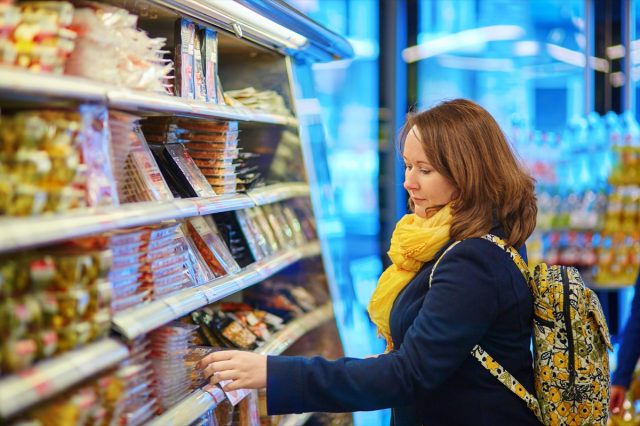
Dr. Jagdish Khubchandani, MBBS, Ph.D. Professor of Public Health New Mexico State University says, "Masks remain a key tool to fight infection. There are three major mistakes we tend to make- not wearing a mask, wearing improperly (e.g. leaving nostrils uncovered), or using flimsy masks. It has been a long time since the pandemic started and people must get new high quality masks as the availability has increased, many masks have become useless now due to wear and tear or repeat washing. Masks also get dirty and need to be changed."
Interacting with People You Assume are Vaccinated

"Intimate encounters, dating, and partying with strangers while assuming that everyone is vaccinated is a major risk," Dr. Khubchandani says. "Many people do not even show symptoms, but could be infected. We must get back to physical distancing (not social isolation) and try not to succumb to boredom which causes these impulsive desires to interact with others and drop our guard."
Being Unvaccinated
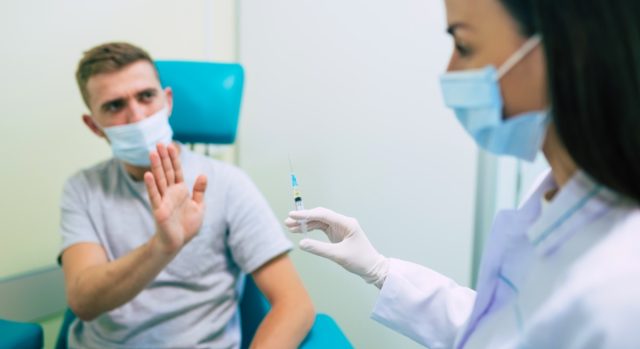
Dr. Kristina Hendija says, "Being unvaccinated means that your immune system is not primed to challenge a COVID infection. This puts you at higher risk in contracting a severe infection which can lead to hospitalization or even death."
Dr. Khubchandani adds, "Not getting a vaccine or getting less than the recommended doses will not help. No matter how many variants emerge, something is better than nothing. Even the new variants are susceptible to vaccine generated immunity (even if the efficacy or level of protection is lower)."
Being Too Relaxed
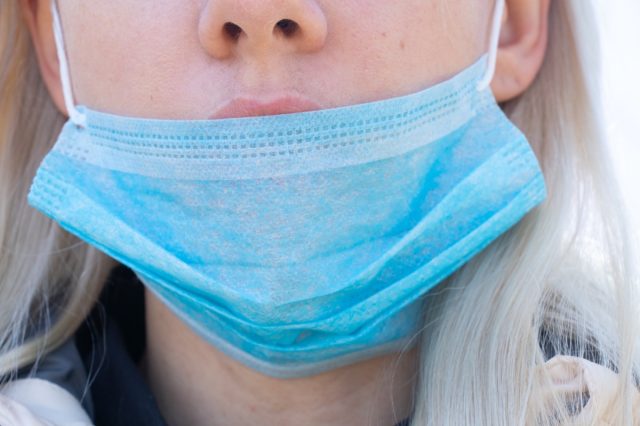
According to Dr. Hendjia, "Despite being vaccinated, it is important to remain vigilant. Vaccines do not offer immunity but a level of protection from severe infection. Therefore, you can still get COVID and be sick. Practice safety protocols despite being vaccinated to protect yourself and your family."
Dr. Khubchandani states, "Dropping your guard and interacting with a lot of people at work, while going out for groceries or holiday shopping, or traveling without a real emergency (e.g. for vacation) should be avoided as much as possible."
Not Washing Your Hands
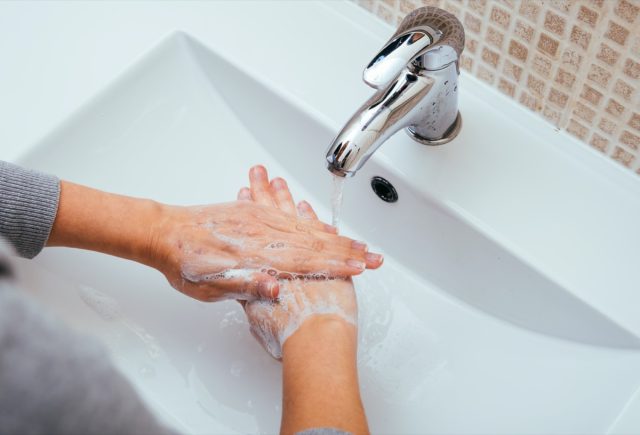
"COVID can be transmitted in numerous ways, and it is important to be proactive in protecting ourselves," Dr. Hendjia reminds us. "Frequent hand washing, wearing face masks and following recommendations from health authorities are critical to keeping yourself safe."
Dr. Khubchandani adds, "In winter and as time has progressed, we have forgotten hand hygiene and sanitation overall. Get daily showers, wash clothes, frequently wash hands with soap and water after coming home anytime you go out, get back from work, or are traveling."
Attending Indoor Events

"Many of the high risk activities now happen indoors- that tendency should be avoided and individuals should use a patio or backyard if at all they need to interact with individuals other than family members in home settings," Dr. Khubchandani explains.
Having an Underlying Health Issue
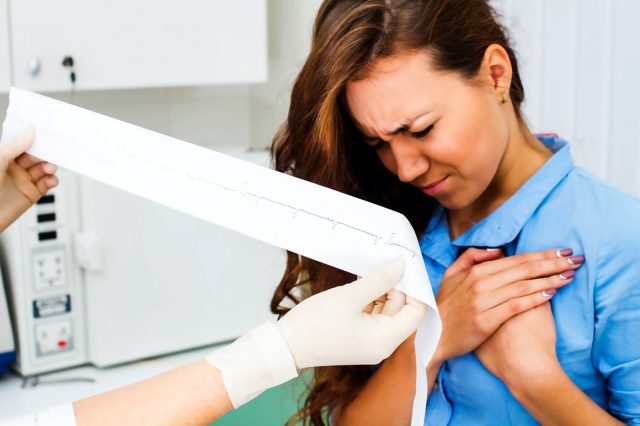
Dr. Linda Khoshaba, NMD, FABNE is the founder of Natural Endocrinology Specialists (NES) and is a physician that is Board Certified in Naturopathic Endocrinology says, "The majority of those infected with the virus will develop mild to moderate respiratory illness and recover without medical attention. On the other hand, some will become critically unwell and require medical assistance. Severe sickness is more likely to strike the elderly and those with underlying medical disorders such as cardiovascular disease, diabetes, chronic respiratory disease, or cancer. COVID-19 can make anyone sick and cause them to get very ill or die at any age."
A Weak Immune System
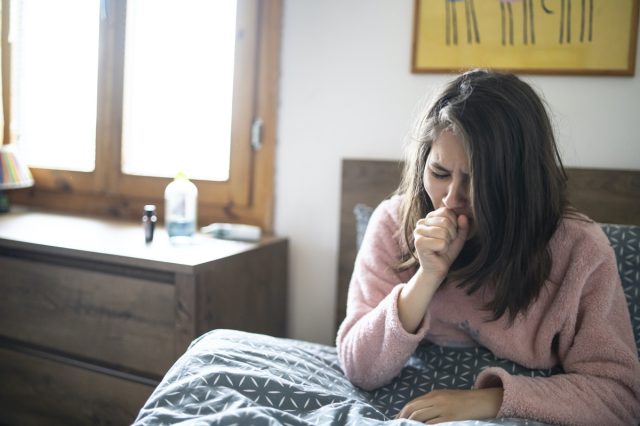
Dr. Hendjia says, "COVID is an infectious process, and our immune system is what fights off the virus. Having a stronger immune system by having and maintaining a healthy lifestyle is a sure way of protecting yourself and lessening your risk of contracting severe COVID."
How to Stay Safe Out There
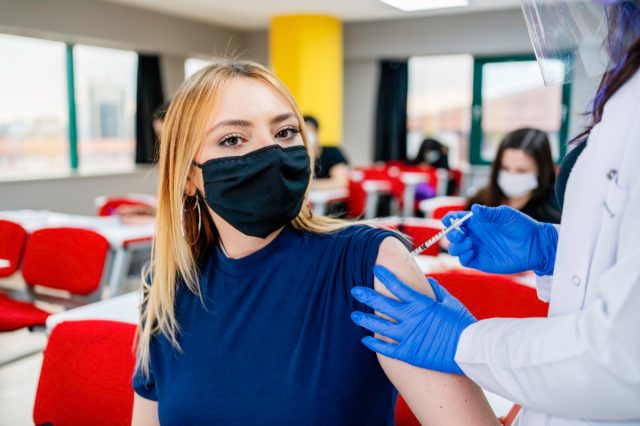
Follow the public health fundamentals and help end this pandemic, no matter where you live—get vaccinated or boosted ASAP; if you live in an area with low vaccination rates, wear an N95 face mask, don't travel, social distance, avoid large crowds, don't go indoors with people you're not sheltering with (especially in bars), practice good hand hygiene, and to protect your life and the lives of others.
No comments:
Post a Comment